[Digital Business Africa – Expert Opinion – By Sergio Pimenta*] – Despite the application of safety protocols and the rollout of vaccines, which are rendering air travel a reasonable option again, physical travel in the midst of a pandemic must be weighed against the rewards. By that measure, I planned my first physical visit to sub-Saharan Africa in 18 months to be as quick, safe, and productive as possible.
I travelled mostly by road—more than 500 kilometers, across three borders, finding countless moments of inspiration along the way. My six days on the ground (June 5 to 10) took me to Togo, Benin, and Ghana, three neighboring countries in West Africa, but each with its own unique development needs. Still, I had one overarching objective: to better understand how these countries were coping with the economic impacts of COVID-19—and how IFC could best support their citizens and businesses.
My trip came fast on the heels of IFC announcing a $2 billion investment in support of Africa’s smaller businesses and trade, a package designed to help galvanize the continent’s economic recovery from the pandemic and to sustain and create jobs and business activity. This is only the latest of numerous IFC investments in Africa since the onset of the pandemic and part of a wider effort by the rest of the World Bank Group, other development partners, governments, the private sector, and dedicated individuals to stand up to this unprecedented crisis.
Togo, June 5-7 – Togo has been a star performer in reforms to enhance the business climate, an action plan supported by IFC. The Government of Togo’s response to COVID-19 was swift, but the pandemic has suppressed the economy, reducing growth to less than one percent in 2020. The Government has formulated a new roadmap for economic recovery for 2020-2025. In my meetings with Togo’s president, H.E. Faure Gnassingbé, and the Prime Minister, H.E. Victoire Dogbé, I reiterated IFC’s support for this important plan.
While in Togo, I was honored to represent IFC Managing Director, Makhtar Diop, at the inauguration of the Plateforme Industrielle d’Adétikopé (PIA). This integrated industrial zone by ARISE IIP is an ambitious project that aims to generate sizably more local value from agricultural resources such as cotton, cashew nuts and soybeans and create 30,000 jobs by 2025. With the opening of IFC’s office in Togo’s capital, Lomé, in 2019 and the hiring in 2020 of our team on the ground, IFC is poised to support Togo’s economic recovery through investments in the energy, health, ICT, manufacturing, MSMEs and other sectors. IFC will also continue to support the Government of Togo’s drive to strengthen the country’s business climate.
Benin, June 7-8: Leaving Togo, we drove the scenic coast road through small towns from Lomé to Cotonou. IFC has been active in Benin for the last two decades, supporting several sectors. In line with the Government of Benin’s Programme d’Actions du Gouvernement (PAG), IFC is considering major investments in sectors that we believe have the potential for job creation. These include access to finance for SMEs, affordable housing, agribusiness, ICT, tourism, and vocational training. I communicated these focus areas in meetings with H.E. Abdoulaye Bio Tchané, Minister of State for Development and Coordination of Government Action, and with H.E. Romuald Wadagni, Minister of State for Economy and Finance, the World Bank Group’s new Governor for Benin.
Shortly before leaving Benin, I caught a glimpse of a future pillar of Benin’s recovery—the site of the under-construction industrial zone of Glo-Djigbé. Like the PIA in Togo, Glo-Djigbé is being built by ARISE IIP and will add value to agricultural products, boosting Benin’s economy, which is expected to rebound to five percent growth in 2021 and 6.5 percent by 2023—close to pre-pandemic levels.
Ghana, June 9-10: By 6 a.m. on Wednesday, we were on the road again, through the Ghana-Togo border*, across Ghana’s Volta Region, and into Accra. The route from Cotonou to Accra offers a unique glimpse of the differences and similarities of town life as one crosses these borders. Of course, between Togo and Ghana lies the added barrier of official language, which changes from French to English. As I entered Ghana, I was reminded that Ghana is home to the headquarters of the African Continental Free Trade Area (AfCFTA)—and the promise of virtually borderless commerce in the continent.
Ghana is also home to one of IFC’s biggest investment portfolios in Africa, close to $2 billion. My primary activity in Ghana was a two-day retreat with the Ministry of Finance to further align IFC’s strategy with the Ghana CARES program, the Government of Ghana’s comprehensive plan for post-pandemic recovery, with an emphasis on the private sector. The Minister of Finance, H.E. Ken Ofori-Atta, led the Ghana team, which included key ministers and others.
In a separate meeting with H.E. President Nana Akufo-Addo, the president challenged IFC to invest more in manufacturing and agribusiness, both areas key to providing jobs for young people. IFC will focus on those areas in addition to access to financing for SMEs, with ICT as a cross-cutting theme.
In keeping with the industrialization theme of my three-country trip, I couldn’t miss a chance to visit the 500-hectare Tema Free Zone, an industrial park east of Accra largely developed by Ghanaian company, LMI Holdings. The zone, which hosts over 100 companies, highlighted the advantages of shared infrastructure and reliable power for the country’s industrialization strategy.
I then had just enough time to catch my flight out of Accra following a busy, but fruitful and eye-opening week in West Africa.
After more than a year of travel restrictions, I was heartened to witness first-hand these countries’ admirable responses and resilience in the face of the COVID-19 pandemic.
Outside of the formal meetings, this trip also provided insight into how men and women in West Africa are adjusting—physically, socially, and economically—to the realities of a COVID-19 world, and for me to take in the sights and sounds I’d missed so much.
In the last two years, IFC has grown its footprint in West Africa, bringing in talented new staff to step up our operations. This trip allowed me to meet our existing and new colleagues who have been working tirelessly on the ground and who give me great confidence that we can deliver on our commitments to Africa.
*As part of measures to mitigate the spread of the coronavirus, the Togo-Ghana border is open only to cargo and occasional diplomatic missions.
*By Sergio Pimenta, Vice President at IFC – International Finance Corporation

After more than a year of travel restrictions, I planned my first physical visit to sub-Saharan Africa from June 5 to 10. My six days on the ground took me to three key countries in West Africa: Togo, Benin, and Ghana. Three neighboring countries, but each with its own unique development needs. As I travelled mostly by road—more than 500 kilometers across the three borders, finding countless moments of inspiration along the way, I had one overarching objective: to better understand how these countries were coping with the economic costs of COVID-19—and how @IFC – International Finance Corporation could best support their people and private sectors.




